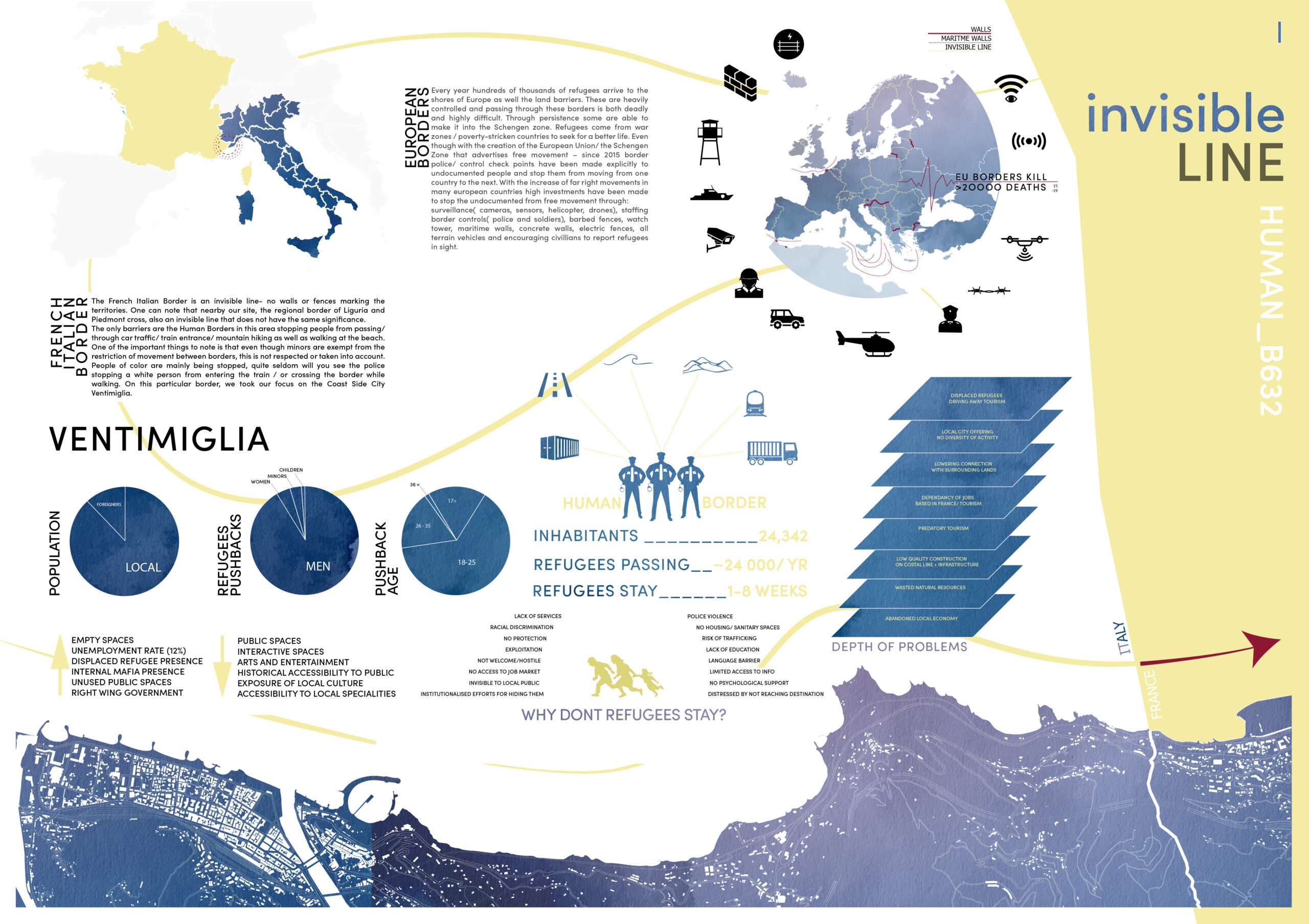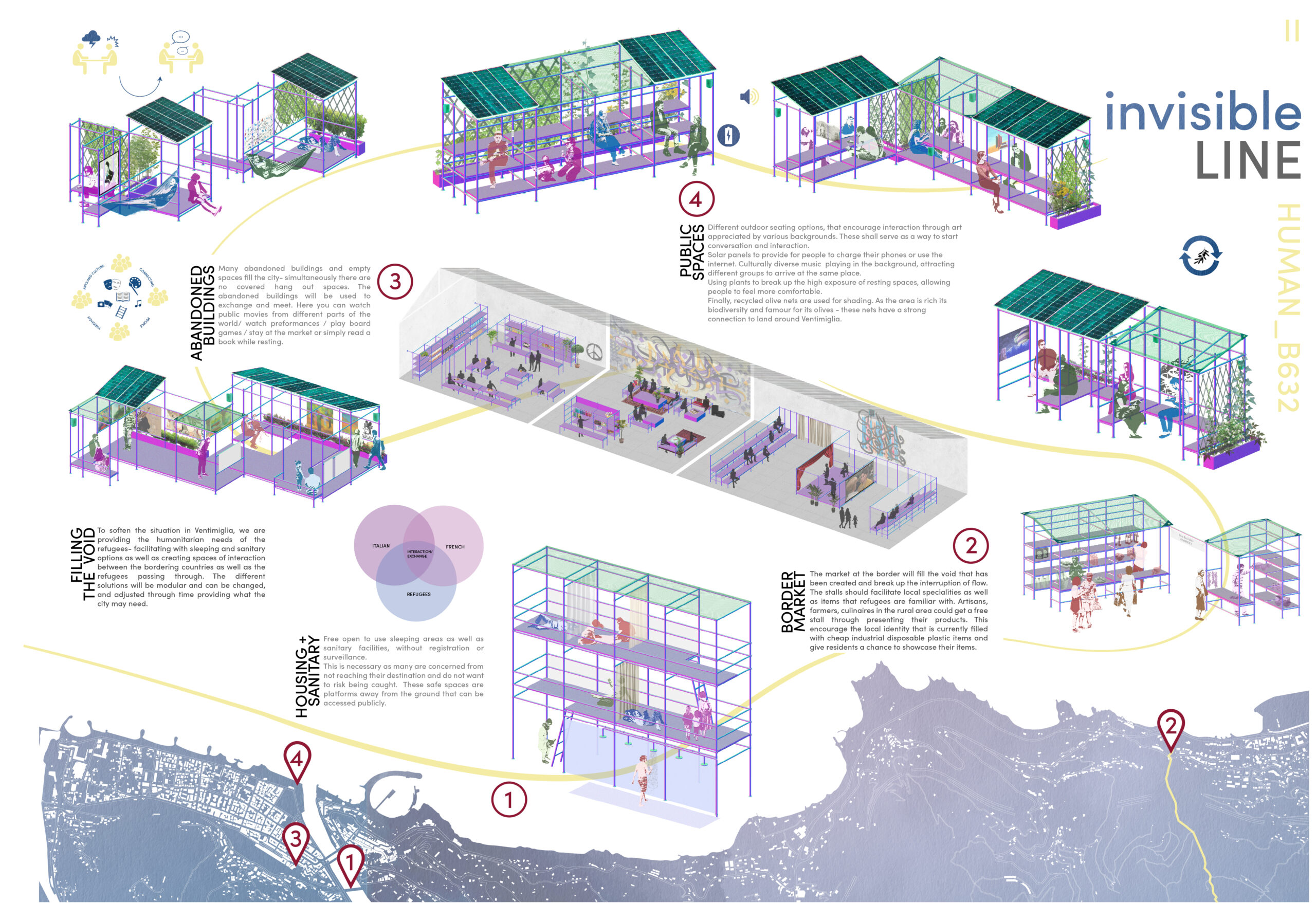Arch. Competition- Ventimiglia Border
About This Project
invisible LINE
Every year hundreds of thousands of refugees arrive to the shores of Europe as well the land barriers. These are heavily controlled and passing through these borders is both deadly and highly difficult. Through persistence some are able to make it into the Schengen zone. Refugees come from war zones / poverty-stricken countries to seek for a better life. Even though with the creation of the European Union/ the Schengen Zone that advertises free movement – since 2015 border police/ control check points have been made explicitly to undocumented people and stop them from moving from one country to the next.
On the Franco Italian Border, we took our focus on the Coast Side Cities Ventimiglia-Menton. Human Borders are in this area stopping people from passing/ through car traffic/ train entrance and mountain hiking.
Each year people suffer the consequences of this border, whether it is physical or mental abuse or worse: death. Some have their items confiscated, stolen and or broken as they return to Italy after being held in containers up to 12 hours. Crime has increased through the result of hopelessness – not only to local people through breaking in empty summer houses but also taking advantage of new refugees by human trafficking or tricking them into believing they are smugglers; thus, the hostility is increasing day by day. The lack of infrastructure, social spaces and interactive elements in the city does not allow people to connect and understand each other and dehumanises refugees in need. Our solutions include modular scaffolding spaces, where different groups are encouraged to meet through local/ French and migrant arts and food. Abandoned industrial buildings that are recreated for cultural exchange and interaction through cinema, art galleries and recreational activities.
We believe that the hostility from the local culture to the migrant crowds comes from only seeing humans in a critical state. State of displacement, where the basic needs of the human is not provided. By providing safe spaces and spaces that humanises the migrant we effectively can allow them to feel included in different activities that clearly show their cultures are appreciated. An interaction between the local culture and the migrants is crucial for harmonising the situation and creating positive spaces. Sharing knowledge of each other’s cultures, giving spaces of interaction and encourage interaction is how we believe strangers could get a stronger sense of empathy to each other.



